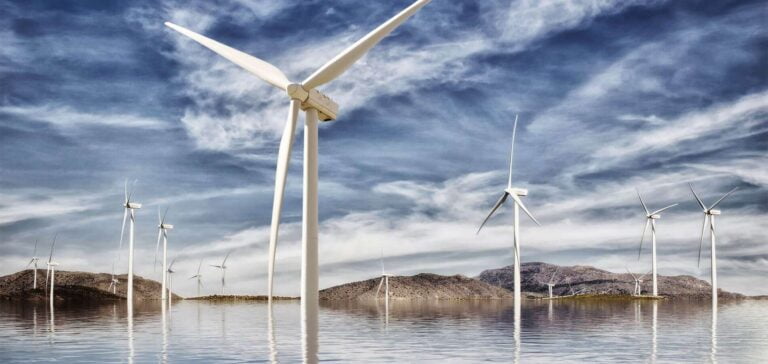Aker, its wind turbine subsidiaries and the University of Strathclyde have developed a new recycling solution for wind turbines.
Together, these organizations have already developed a recycling process.
The next step is industrial development.
Aker finances an innovative fiberglass process
In conjunction with theUniversity of Strathclyde, Aker is developing a process for recycling and treating turbine fiber to restore its mechanical properties.
It will then be as good as new, or almost.
Its transposition to industrial scale will be facilitated by the expertise of the other branches of the Aker Group in chemical treatment and carbon capture.
Almost half the world’s demand for fiberglass could be met if this process were developed on a large scale.
Help reduce emissions from polluting sectors
Reprocessing glass-reinforced plastics isn’t just about producing wind power.
Fiberglass is used in sectors as diverse as construction, shipbuilding, petrochemicals and sports equipment.
It’s an excellent opportunity to bring a sustainable dimension to industries that have a reputation for being highly polluting.
2 million tonnes of plastic waste for turbine manufacture by 2050
“Industrial waste is a challenge for most industries. By teaming up with the University of Strathclyde, we have the opportunity to develop a new solution for a growing problem […],” said Aker Offshore Wind CEO Astrid Skarheim Onsum.
The plastics used to manufacture turbines are a major source of pollution.
Until now, it was impossible to recycle them because of the manufacturing process.
As a result, most of the blades end up in landfill or, in some cases, as fuel in power stations.
The volume of this waste continues to grow.
According to Strathclyde University, it will rise from 400,000 tonnes in 2030 to over 2 million tonnes by 2050.
This highlights the need to incorporate a principle of sustainability into the construction of these materials.






















